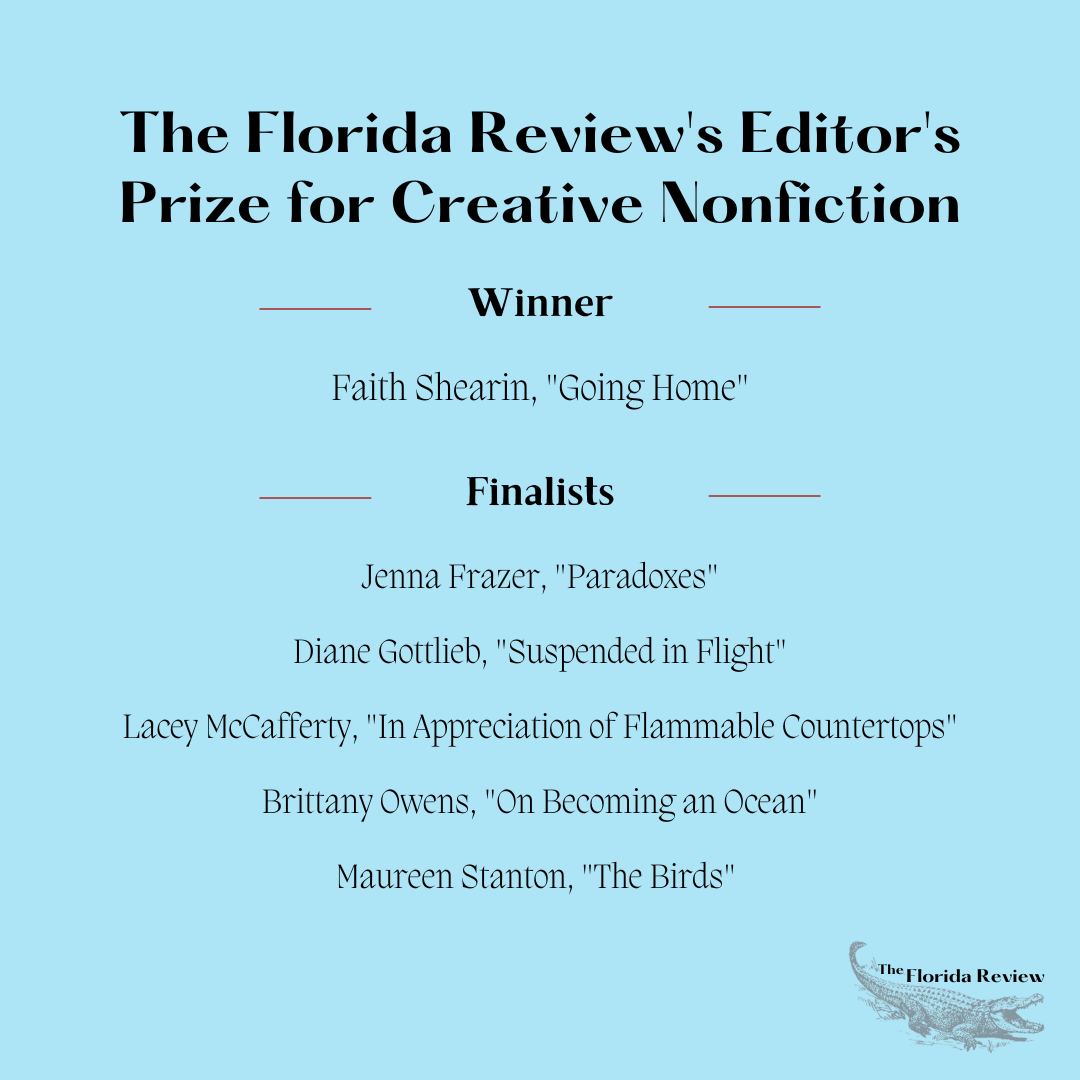Mark Brazaitis
When my mother died in May of 2022, at age seventy-nine, she left me and my sister her house in Washington, D.C. I visit the house frequently, ostensibly to clean it in preparation to put it on the market. Less a dutiful housekeeper and more a curious visitor to a museum, however, I never fill more than a few of the 13-gallon trash bags I carry with me. I am reluctant to disturb anything when every room is a wing of a compelling exhibition, and each object in it—photo, T-shirt, letter, knickknack, receipt—is a revealing relic of my mother’s life.
The manner in which I tour her house determines the way I read her story. It’s like inhabiting a work of experimental prose: the beginning and end are arbitrary; characters appear unexpectedly; there are frequent and abrupt jumps in time; and the narrative is nonlinear, digressive, and sometimes redundant. Occasionally my mother recedes from the tale, and I move to the forefront: a ten-year-old, a high-schooler, a college graduate, and—in a bathroom mirror—a middle-aged man still coming to terms with his past.
The following is one of my visits to my mother’s museum, her story—and mine—conjured by four objects:
A mini cassette tape labeled “Step People.” (Exhibit location: top drawer of my mother’s dresser.)
I made the tape as a humorous gift for my mother in the summer of 1989, when I was twenty-four, combining audio from my father’s second wedding and my droll (or such was my intention) commentary on the ceremony. For good measure, I mixed in snippets of pop songs, including the Kinks’ “Destroyer,” over which I shouted lyrics I invented. I named the tape “Step People” after my four new relatives—my stepmother and three stepbrothers—whom I equated with figures from a horror film, even if my oldest stepbrother was my good friend.
For my mother, my father’s remarriage was a double injury. It represented a final betrayal by her former best friend, my father’s soon-to-be wife, who’d encouraged her to divorce my father, then, a few months later, started dating him. And it was the culmination of my father’s cruelty toward her, which had begun years earlier, when we lived in East Cleveland, Ohio, and he had an affair with another of her close friends.
Periodically after the divorce, in the spring of 1982, my mother sobbed in her bed late at night. Invariably, I pulled myself from sleep and sat by her as she revisited my father’s transgressions. To comfort her, I mocked my father and his lovers past and present. My goal was to make my mother laugh. If she was laughing, she wasn’t crying.
My mother’s tears ceased before morning. Perhaps she didn’t think she could afford to let her sadness slow her down. She was the tireless, inventive, and accomplished editor and publisher of Hammer and Dolly, the monthly magazine of the Washington Metropolitan Auto Body Association. She’d turned Hammer and Dolly from a 16-page provincial digest into an 80-page glossy with an international readership. The magazine featured news from around the world on everything from computerized estimating systems to new paint technologies to controversies over aftermarket parts, as well as profiles of people in the industry and lighthearted features, including a cover story on the best “whoopee” cars.
Nor did my mother cry when one of her boyfriends was on the scene. Did she not feel the urge to cry, or did she refrain because she was worried that the man she was with would feel diminished by the feelings—negative but powerful—she still had for my father? I never asked her.
My mother would marry my stepfather a few months after my father’s wedding, but this didn’t mean he wouldn’t suddenly exit her life, as he’d done before, when they’d been dating. Meanwhile, I’d graduated from college, would soon leave for Guatemala with the Peace Corps, and wouldn’t be around to soothe and amuse her. I decided she needed something to comfort her in my absence. Whenever she felt blue, she could listen to “Step People.”
Before my father’s wedding, I placed my microcassette recorder in my suitcoat pocket. Immediately before the ceremony, I pushed “record.” I was my father’s best man. Standing with him at the altar, I might as well have been wearing a wiretap. I alternately felt like a righteous informer and a stool pigeon.
Clearly eager to appear learned and worldly in front of what he must have judged a sophisticated crowd—both my father and his bride were reporters; their wedding guests included well-known politicians and journalists—the pastor interspersed Bible verses with wisdom from other religious traditions. And he couldn’t resist sprinkling his service with lines from Kahlil Gibran, the author of The Prophet, whose overquoted words had something in common with greeting card rhymes.
At one point in the service, my stepmother’s middle son read a poem he’d written, its final couplet rhyming “Tom,” my father’s name, and “Mom.” My sister and I, trained by our maternal grandmother to be literary snobs, had to think sad thoughts so we didn’t howl with laughter.
At the reception afterward, the husband of a local news anchor protested that his wife—who was clearly used to getting whatever she wanted immediately—had yet to receive a piece of wedding cake. The cake had been cut only a couple of minutes before, but never mind—her sweet tooth needed instant gratification. He chanted his demand: “My wife needs cake! My wife needs cake! My wife needs cake!”
I captured all of it on tape and spliced highlights, or lowlights, together with music and my oh-so-funny (or snarky or sophomoric) observations.
I wonder how often my mother listened to “Step People.” Because I found the tape in an open box in her dresser’s top drawer, I suspect that she must at least have looked at it long after my father’s wedding and probably long after his death, of kidney cancer, in 2005.
From time to time, I’ve felt guilty about mocking my father’s wedding. I would have been ashamed had he ever listened to “Step People.” But staring at the cassette, titled with my long-ago handwriting, I imagine a sorrowful night in which my mother, alone in her dark bedroom, clicked “play” on her mini tape recorder. If her tears gave way to laughter, I don’t have any regrets.
A photograph of my sister and her then-boyfriend, when they were in college, sitting on an armchair in my mother’s living room. (Exhibit location: a drawer in the vanity of my sister’s old bedroom.)
My sister’s boyfriend broke up with her on Christmas Day, 1992, but only after he’d celebrated the holiday at our house and loaded the trunk of his car with the gifts my family had given him. An hour after her boyfriend drove off to his home in New Jersey, my sister shared her sad news with our father, who was living down the block with his second wife. My father grieved—not for my sister’s loss but for the money he’d spent on the guitar tuner he’d given her now ex. “My God,” he said, “he might as well have robbed me at gunpoint. It would have been more decent.”
What strikes me about the photo, however, aren’t its two subjects but what is visible at its edges. Under the lamp on the table beside the armchair is a collage picture frame with photographs of my silver-haired, tanned stepfather. Above the lamp is another collage of photos, this one featuring a baby, my stepfather’s first grandchild. On the mantel above the fireplace is a 10-by-13 high-school photo of my stepfather’s younger son. Behind my sister’s head, in an open cabinet, is the television my stepfather watched endlessly as he smoked one cigarette after another, the fumes sucked into an electric air filter my mother insisted he use.
I’d forgotten how much of the house, which became my mother’s after she and my father divorced, my stepfather had claimed. Now I remember returning to it at various times after I’d left home for college, for the Peace Corps, and for graduate school, and finding it each time a degree stranger than the house I’d felt most comfortable in, which wasn’t when my father lived in it but in the months immediately after he (and his temper and his obsession with tidiness) left.
My stepfather, who was then my mother’s boyfriend, moved into my mother’s house at the beginning of my junior year in high school. In the aftermath of a divorce, it isn’t uncommon for children to live with the stranger who is their parent’s new partner. By extension, we children of divorce live with the stranger’s family and friends, their habits and hobbies, the foods they like, the entertainment they entertain themselves with. Do most of us grow comfortable with the arrangement? I never did. The longer my stepfather lived in my mother’s house, the more it felt to me like a bed-and-breakfast whose walls, weirdly, held a few photos of me, my sister, and my mother.
After twenty years, my mother divorced my stepfather. But even now, more than a decade after he last stepped foot in the house, I find traces of him: golf tees engraved with the name of the insurance company he worked for; videotapes of his favorite comedians; a pennant from a professional football team he liked. Although I call my stepfather every Christmas and faithfully send birthday cards, I’ve never stopped thinking of him as an interloper. After my father’s exile, I was, briefly, the king of my mother’s house. I’d thought this was the way it was supposed to be; I was next in the line of succession, after all.
If I have more perspective on my Oedipal ambitions now, I am no less interested in reclaiming my territory. Anything of my stepfather’s I come across goes straight into one of the trash bags I’m carrying. Discarded item by discarded item, I begin to restore my mother’s house to the place I felt most comfortable, the place I believed was most mine, the place I would most call home.
A box full of empty boxes. (Exhibit location: the attic.)
It’s a metaphor, I decide. But of what?
Do the dozen small boxes, each large enough to hold a necklace or a tie, represent the gifts we never gave each other?
What gift would I have wanted from my parents?
When I was growing up, they gave me model airplane kits, books about dinosaurs, a baseball glove. Later: a Bruce Springsteen album, a black sweater, War and Peace in the original Russian. (A lazy Russophile, I read no more than a page.) But if I could go back in time, to when I was ten or twelve or fifteen, and ask my parents for a gift, I’d wish for something immaterial.
It wouldn’t be that they remain married, which would be to wish for both the impossible and the undesirable. They’d had two wedding ceremonies, one Catholic, one Protestant, in order to appease their Montague-and-Capulet parents, who’d deigned to attend only the ceremony they preferred. A more mature and compatible couple might have overcome this inauspicious start, but my parents’ marriage soon became strained, contentious, and, most damaging, adulterous. It needed to end.
If I wished that my parents had never married, I wouldn’t be wishing myself out of existence. I’d been conceived two months before they exchanged vows. But as resilient and tough as my mother could be, she would have found single-parenting challenging, especially because my father would have been, at best, a reluctant contributor to my welfare, stingy with his time and his money. And they wouldn’t have had my sister.
No, the gifts I wish they’d given me are the gifts I wish they’d given each other.
I wish my mother had given my father the gift of her forgiveness. From the start, he was an unsuitable partner, expected to live up to Father Knows Best standards that his own father, an alcoholic who abandoned his family when my father was eight, never came close to meeting. Tormented by his Catholicism, which sanctified sex only if procreation was its aim, my father found sin tempting not only for its pleasures but for the middle finger it waved in the faces of oppressive authorities. Early in his marriage, my father and one of his lovers received a citation for public indecency. My father considered it a kind of medal—proof that he’d defied God, the Catholic Church, and the law. When he told me the story years later, he seemed unconcerned about the only person his behavior had actually hurt—my mother—who’d found the citation in his desk drawer.
If my mother had forgiven my father, she would have freed herself from the debilitating anger and resentment she felt toward him. But even in the months before her death, she belittled his character and blasted his failures as a husband and father. She’d forgiven him nothing.
From my father, I would have wanted the gift of clarity and compassion—clarity about how he’d made my mother miserable and compassion for her pain. Had he acknowledged my mother’s sorrow and told her he was sorry to see her suffer, he might have lessened the bitterness in their relationship, thereby liberating me from my role as my mother’s confidante and consigliere—and his secret critic and lampoonist.
What gifts would my parents have wanted from me?
My mother, at her angriest and most wounded, might have wanted even more of my loyalty—perhaps my outright refusal to have anything to do with my father.
My father, I suspect, would have liked me to be less sensitive. If I’d been less attentive to my mother’s needs (or neediness, as he might have put it), I would have been more accepting of his relationships, particularly with his second wife. For a long time, I saw her only as my mother did, as someone deserving scorn.
What gift would I have given myself if I could reach across the years and place it in my teenage hands? The equanimity to accept my parents’ flaws, including their failure to temper the rancor in their relationship, and the wisdom to realize I had no power to make either of them happy—and no obligation to.
Of course, to gain such equanimity and wisdom, I needed to have lived the years I’ve lived. I imagine myself, as in a science fiction novel, returning to the time of my parents’ divorce. Do my parents notice I’m a fifty-six-year-old man with gray hair and spider-web-thin lines at the corners of my eyes? Am I able to retain my transcendent tranquility, or do I become, again, the boy I’d been, caught in the tempest of the never-ending end of my parents’ marriage?
Even now, I would have nothing more to offer than a plea—Be kind to each other, please—which is what I wanted to say a thousand times but never did.
A Rolex watch. (Exhibit location: a bottom drawer in the vanity in my mother’s dressing room.)
I’ve always thought of Rolexes in the same category as Ferraris: showpieces beyond the means of most mortals. Evidently, the watch wasn’t beyond my mother’s means, although it was difficult to determine what her means were. She was open about much of her life but deeply secretive about money. My sister and I watched her spend it sometimes in what we considered frivolous ways—she bought more Beanie Babies than should have been legally permitted, for example—and we braced ourselves for the day she would confess to bankruptcy.
I don’t remember my mother buying a Rolex. I think I would have. Although she was circumspect about her money, she was ostentatious about her purchases. Her Beanie Babies occupied half of the shelves in her house. Her Diane Freis dresses filled an entire closet. She bought enough books on tape to listen to John Grisham, Stephen King, and Anne Rivers Siddons over the course of three lifetimes.
Did my mother inherit the Rolex from her mother? When my grandfather wasn’t arguing with my grandmother, he worshipped her. Perhaps the watch had been one of the few extravagant gifts he’d bought her. Having survived the Great Depression and worked his way into the middle class, he was a devout believer in the American Dream. A Rolex would have been proof that he’d achieved it.
I’ve never imagined owning a Rolex. I’ve lost enough Timexes to wonder if I should own a watch at all. But even if it’s a woman’s watch, too small for my wrist, it’s mine now. Therefore, I’ll need to revise my idea of who I am: poet, former Peace Corps volunteer, teacher, environmentalist, and…Rolex owner! The latter puts me in the company of such luminaries as tennis star Roger Federer and jazz singer Diana Krall.
The Rolex has stopped ticking, but HNP Jewelry and Watch Repair is less than a mile from my mother’s house, conveniently tucked in the basement of Rodman’s, which sells everything from Greek wine to organic dog treats to Tylenol. HNP is owned and operated by an older Asian couple, and when I hand the watch to Corey, a soft-spoken man with a subtle wit, he smiles and says he’ll have the battery replaced in ten minutes.
As I’m wandering the aisles, I have a sweet fantasy of Corey returning my watch and, after an appreciative whistle, telling me it’s worth $20,000.
When I return to his counter, he says, “You’re the man with the Rolex?”
I nod as modestly as I can.
He retrieves it from his worktable and gives me a sly smile. “You know it’s a fake, right?”
“It is?” Surprisingly, my voice doesn’t rise in plaintive disappointment. I’ve prepared for this possibility. What’s too good to be true usually is. I ask, “How do you know?”
“From what’s inside it.”
Instead of platinum springs and wheels—or whatever the inner components of a Rolex are—I imagine aluminum and plastic.
The new battery is $25. I wonder if the watch is worth half as much.
“More fake Rolexes than real,” Corey says. His shrug suggests this is true of so much in our imitation world.
Driving back to my mother’s house, I wonder if Bob, one of my mother’s former boyfriends, gave her the “Rolex.” It was Bob, after all, who, as he asked her to marry him, presented her with a ring made of cubic zirconia. He claimed the ring was diamond, but, suspicious, my mother brought it to Tony Bonanno, a famously discerning jeweler with a workshop in the Maryland suburbs. In his gravely, Godfather voice, Bonanno told my mother, “It may be worth $3, but I wouldn’t give you a dollar for it.”
When my mother confronted Bob about the ring’s inauthenticity, he tried to reframe its value by telling her it was “made in space.”
When my mother shared this information with Tony Bonanno, the jeweler said, “Lady, I think your boyfriend was made in space.”
In my mother’s last conversation with Bob, she told him, “Either you’re lying or you’re stupid. Either way, you’re out of here.”
I helped Bob load his belongings into the back of his truck before he drove off. His last words to me were: “Go out with your hair on fire.” To this day, I have no idea what he meant.
In later year, stories of “Diamond Bob” never failed to draw a laugh from people, even from my mother, who, despite her general good nature, was sensitive about certain portions of her biography. My grandfather found special delight in “Diamond Bob” stories, perhaps because he was susceptible to conmen.
My grandfather believed not only in the American Dream but in its accelerated version. He made several investments with acquaintances who promised fast and fantastic returns. One involved a self-healing asphalt. With the technology, my grandfather told me enthusiastically, potholes would become extinct. Potholes defied predictions of their demise, and my grandfather lost $5,000.
To the end of his life, he hoped to cash in. Even as he slid into dementia, he mailed off checks to sponsors of sweepstakes, one of which, American Family Publishers, had a prominent (and seemingly trustworthy) spokesman, Ed McMahon, Johnny Carson’s chuckling sidekick on The Tonight Show. My grandfather was convinced that McMahon would soon be knocking on his door, million-dollar check in hand. “But don’t tell your grandmother,” he said to me. “I want it to be a surprise.”
I wonder if my grandfather received the “Rolex” as part of “winning” a sweepstakes. My grandmother would have known it was fake. But, respecting his dignity, she would have kept this insight to herself.
On my drive back to my house in Morgantown, West Virginia, I think about giving the “Rolex” to my younger daughter, who is twenty and about to leave for a junior-year-abroad semester in Italy. I picture the delight on her face as I hand her what I’ll allow her to believe is the genuine article. I imagine my pleasure at being the author of her joy. How long would I allow her to keep her illusion? Tony Bonanno is dead. He can’t tell her that her father was made in space.
I don’t lie to my daughter, but she wants the watch anyway. She’ll have fun pretending it’s authentic, she says.
I hand it to her. She places it on her wrist. I’m disappointed: It doesn’t fit perfectly. But: “Good enough,” she says, and, laughing, goes to look at herself in the mirror.
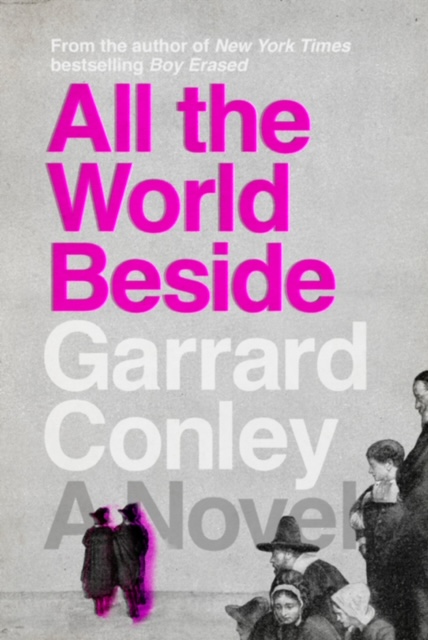 Though Garrard Conley’s transcendent debut, All the World Beside, is ostensibly about an eighteenth century gay love affair between Arthur Lyman, a physician, and Nathaniel Whitfield, a reverend, the novel is chiefly concerned with the nature of desire and the salvation of the soul.
Though Garrard Conley’s transcendent debut, All the World Beside, is ostensibly about an eighteenth century gay love affair between Arthur Lyman, a physician, and Nathaniel Whitfield, a reverend, the novel is chiefly concerned with the nature of desire and the salvation of the soul.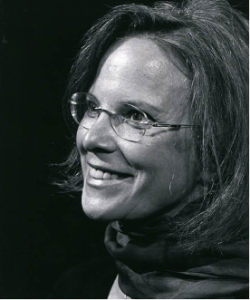 Carolyn Forché is the author of five books of poetry, most recently In the Lateness of the World(Penguin Press, 2020), a finalist for the Pulitzer Prize, and also Blue Hour (2004), a finalist for the National Book Critics Circle Award, The Angel of History(1995), winner of the Los Angeles Times Book Award, The Country Between Us(1982), winner of the Lamont Prize of the Academy of American Poets, and Gathering the Tribes (1976), winner of the Yale Series of Young Poets Prize.
Carolyn Forché is the author of five books of poetry, most recently In the Lateness of the World(Penguin Press, 2020), a finalist for the Pulitzer Prize, and also Blue Hour (2004), a finalist for the National Book Critics Circle Award, The Angel of History(1995), winner of the Los Angeles Times Book Award, The Country Between Us(1982), winner of the Lamont Prize of the Academy of American Poets, and Gathering the Tribes (1976), winner of the Yale Series of Young Poets Prize.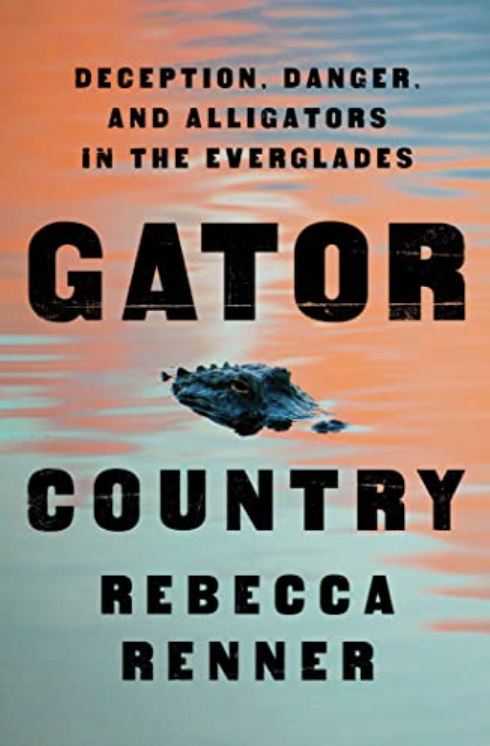 Equal parts true crime and an exploration of Florida folktales, veteran journalist Rebecca Renner weaves together a thought-provoking nonfiction debut with Gator Country: Deception, Danger, and Alligators in the Everglades. Renner quickly delivers on the promise of the book’s provocative title, sharing truths more thrilling than fiction as she intertwines impassioned narratives and dispels myths surrounding conservation.
Equal parts true crime and an exploration of Florida folktales, veteran journalist Rebecca Renner weaves together a thought-provoking nonfiction debut with Gator Country: Deception, Danger, and Alligators in the Everglades. Renner quickly delivers on the promise of the book’s provocative title, sharing truths more thrilling than fiction as she intertwines impassioned narratives and dispels myths surrounding conservation.





 Hurricane Season is a noir thriller about fighting and addiction, prison and drugs; but more than that, it is a love story set in the carnage of an America wrecked by inequality.
Hurricane Season is a noir thriller about fighting and addiction, prison and drugs; but more than that, it is a love story set in the carnage of an America wrecked by inequality. Mark Powell is the author of seven novels, including Lioness, Small Treasons–a SIBA Okra Pick, and a Southern Living Best Book of the Year–and Hurricane Season. He has received fellowships from the National Endowment for the Arts, the Breadloaf and Sewanee Writers’ Conferences, and twice from the Fulbright Foundation to Slovakia and Romania. In 2009, he received the Chaffin Award for contributions to Appalachian literature. He has written about Southern culture and music for the Oxford American, the war in Ukraine for The Daily Beast, and his dog for Garden & Gun. He holds degrees from the Citadel, the University of South Carolina, and Yale Divinity School, and directs the creative writing program at Appalachian State University.
Mark Powell is the author of seven novels, including Lioness, Small Treasons–a SIBA Okra Pick, and a Southern Living Best Book of the Year–and Hurricane Season. He has received fellowships from the National Endowment for the Arts, the Breadloaf and Sewanee Writers’ Conferences, and twice from the Fulbright Foundation to Slovakia and Romania. In 2009, he received the Chaffin Award for contributions to Appalachian literature. He has written about Southern culture and music for the Oxford American, the war in Ukraine for The Daily Beast, and his dog for Garden & Gun. He holds degrees from the Citadel, the University of South Carolina, and Yale Divinity School, and directs the creative writing program at Appalachian State University.











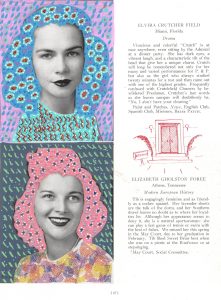
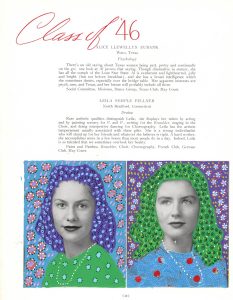
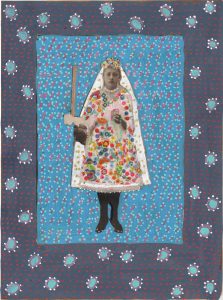
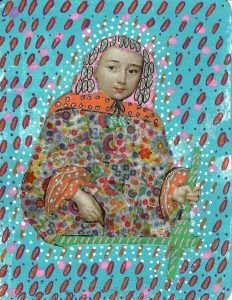
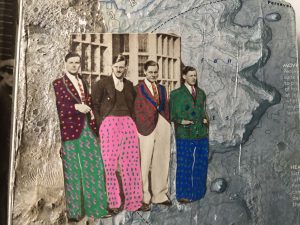
 We are delighted to announce our 2023 Editor’s Prize for Poetry Winner and Finalists! Congrats to: Caleb Parker, Bertha Crombet, Michael Weinstein, and Maggie Yang. All winners receive $1,000 and publication in The Florida Review 48.1, Spring, 2024.Our 2024 contest opens in January. Thank you for supporting The Florida Review!
We are delighted to announce our 2023 Editor’s Prize for Poetry Winner and Finalists! Congrats to: Caleb Parker, Bertha Crombet, Michael Weinstein, and Maggie Yang. All winners receive $1,000 and publication in The Florida Review 48.1, Spring, 2024.Our 2024 contest opens in January. Thank you for supporting The Florida Review!

